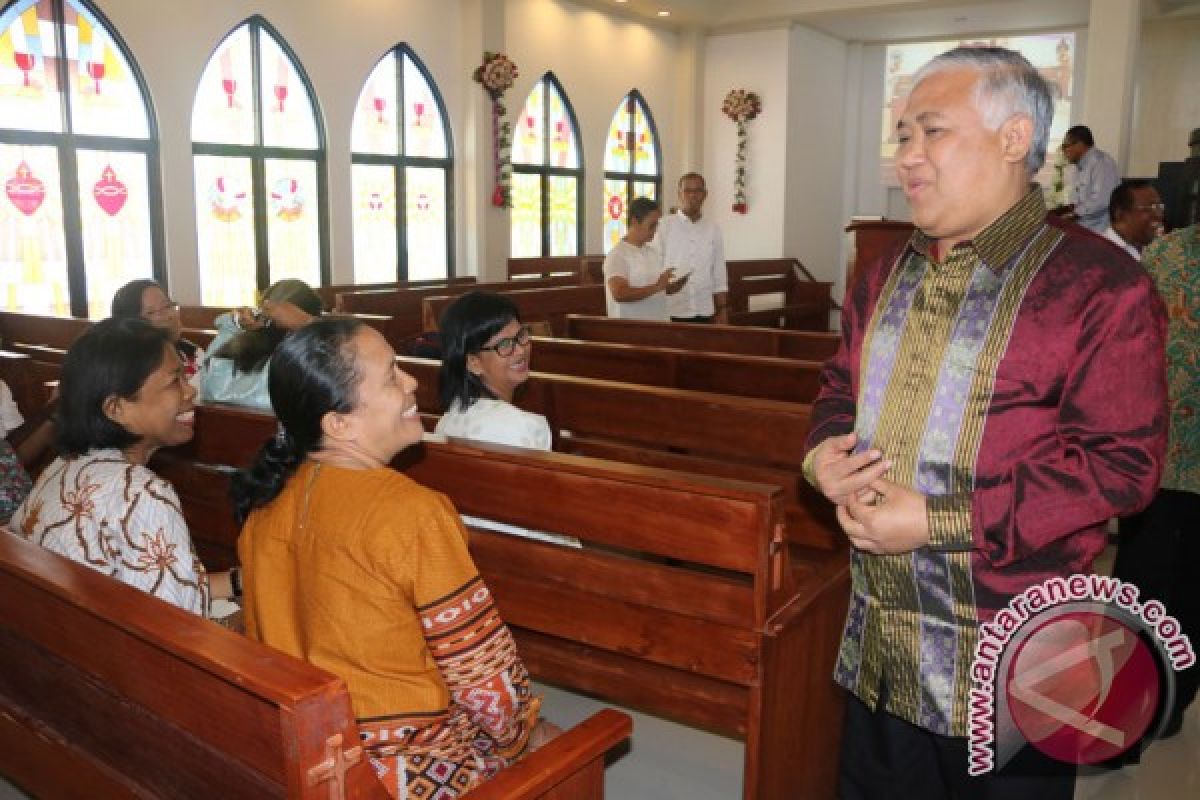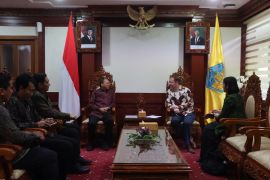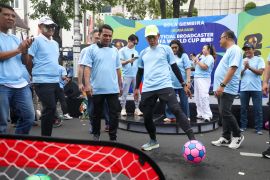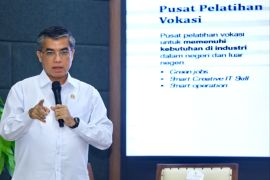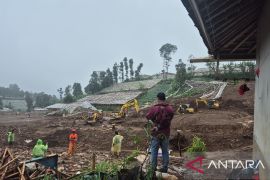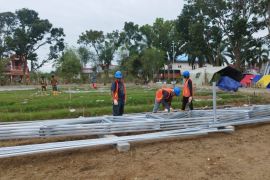"Optimistic things about religious tolerance and harmony in Indonesia like this should be disclosed globally, " Jakarta State Islamic University Former Rector, Azyumardi Azra, said.Jakarta (ANTARA News) - Religious harmony and tolerance remain strong in Indonesia and considered better than in other countries.
It could also be a model for other countries to learn from, given the Indonesia constitution provides for freedom of religion and the government generally respects the freedom of the six officially recognised religions of Islam, Protestantism, Catholicism, Hinduism, Buddhism, and Confucianism.
In the light of this, Jakarta State Islamic University Former Rector, Azyumardi Azra even said the religious harmony in Indonesia is among the best in the world.
Despite frequent cases of intolerance in the country, Azyumardi said it was isolated.
With diverse cultural tolerance and inclusive traditions, Indonesia is considered to have an important role in globally enforcing human rights.
As a result, the former rector asserted that the case of casuistic and isolated intolerance cannot reflect the condition of Indonesia as a whole.
"Optimistic things about religious tolerance and harmony in Indonesia like this should be disclosed globally, "Azyumardi said in a discussion held by the Ministry of Religious Affairs in Jakarta on Thursday.
Azyumardi pointed out that some countries in Europe were formed due to the incidents of intolerance, both ethnically and religiously, while Indonesia has never had a religious war
Recognising religious harmony in Indonesia as among the best, Foreign Affairs Minister Retno Marsudi has invited Russian Muslims to work with their Indonesian counterparts to spread the values of peace and tolerance.
Marsudi recently met with Deputy Chairman of the Russian Federation of the Muslim Assembly, Damir Gizatullin, at the Moscow Grand Mosque.
A Foreign Affairs Ministry`s press statement said the Indonesian foreign affairs minister urged Muslims in Russia to work with Indonesian Muslims to spread the values of peace and tolerance.
"Indonesia has the world`s largest Muslim population, and Russia has a significant number of Muslims, so it would be good if they improve their relations to disseminate the values of peace and tolerance together," Marsudi told Gizatullin.
The Grand Mosque of Moscow is one of the largest in Russia and Europe. It was first built in 1904. In 1956, President Soekarno also set aside time to visit the Great Mosque of Moscow.
To accommodate the growing congregation, the mosque was demolished and rebuilt in 2011 and inaugurated the day before Eid al-Adha in September 2015 by President Vladimir Putin.
The Great Mosque of Moscow has a land area of 18,900 square meters, with six floors, and can accommodate about 10 thousand worshipers. The Great Mosque of Moscow also houses a school to educate and prepare priests and preachers.
The Indonesian foreign affairs minister made a proposal to the vice-chairman of the Muslim Council of the Russian Federation to exchange of priests between Indonesia and Russia.
Furthermore, Marsudi elaborated on a plan to hold a cross-trust meeting between Indonesia and Russia by the end of this year and sought support from the Russian Mufti Council.
Religious tolerance is closely linked to human rights, and so long as human rights are concerned, Indonesia is known to have high tolerance and cultural diversity.
Hence, the French Ambassador for Human Rights, Francois Croquette has encouraged Indonesia to be more active in the global dialogue on human rights.
During a recent press conference in Jakarta, Croquette expressed his desire for Indonesia to be more active in enforcing human rights in the United Nations Security Council, and join a coalition and apply various traditions in the handling of human rights issues.
For him, Indonesia is one of the important partners to work with in a global environment that is constantly confronted with the challenges of human rights enforcement.
During his recent visit to Indonesia, the French ambassador for human rights also met with representatives from the Ministry of Justice and Human Rights, the Ministry of Foreign Affairs, the National Commission on Human Rights (Komnas HAM), the Supreme Court, and non-governmental organisations to discuss issues related to the death penalty, and rights of lesbian, gay, bisexual, and transgender (LGBT) communities.
Human Rights Watch works for lesbian, gay, bisexual, and transgender peoples` rights, and with activists representing multiple issues.
Abuses based on sexual orientation and gender identity worldwide, including torture, killing and executions, arrests under unjust laws, unequal treatment, censorship, medical abuses, discrimination in health and jobs and housing, domestic violence, abuses against children, and denial of family rights and recognition were also documented and exposed.
In a regional context, Croquette also discussed the humanitarian crisis in Myanmar last year which became one of the biggest human rights violations to attract the attention of the world.
Although Myanmar and Bangladesh are currently in the process of repatriating Rohingya refugees back to Rakhine State, it is not enough to resolve the conflict in the country.
Hence, Croquette expects the international community to participate and contribute to finding solutions to the long-running conflict that sparked "ethnic cleansing" in Myanmar.
(O001/INE/B003)
(T.O001/A/KR-BSR/B003)
Reporter: Otniel Tamindael
Editor: Heru Purwanto
Copyright © ANTARA 2018
